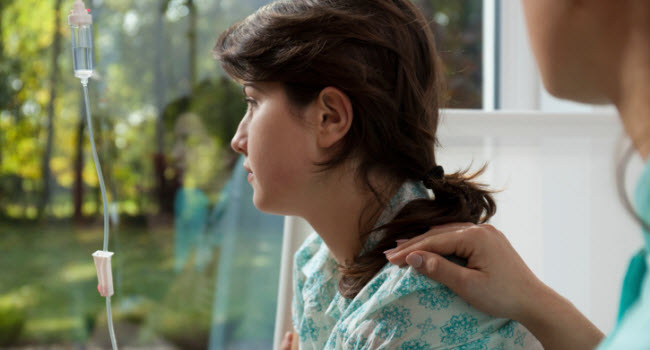 Cancer effects the lives of nearly 15 million Americans. While this includes those with a new diagnosis, those who have been living cancer-free for years, and those pushing through treatment, such a large group of people means that just about every one of us knows someone who has received a cancer diagnosis or we have received one ourselves.
Cancer effects the lives of nearly 15 million Americans. While this includes those with a new diagnosis, those who have been living cancer-free for years, and those pushing through treatment, such a large group of people means that just about every one of us knows someone who has received a cancer diagnosis or we have received one ourselves.
There is a lot of fear that comes alongside a cancer diagnosis, not just for the individual, but for family members and friends as well. The next few months will be filled with doctor’s visits, treatments, and specialists, all with a layer of uncertainty about how the future will turn out. The battle with cancer can be an emotionally and physically draining, and often times, cancer can be painful.
While it can be difficult, the best way to approach a life with cancer is with the strength to get through it and an understanding of what it will take to maintain a healthy lifestyle while undergoing treatment.
During treatment, you will need a supportive shoulder and someone to talk to. Turn to a friend or family member when going to doctor appointments, seek professional assistance from a health care provider, like a psychologist or social worker, or you may also find spiritual guidance helpful during this time. You may also find that you would rather express your feelings through a creative pathway, like painting, music, or writing.
Which ever way you choose to handle the diagnosis and treatment emotionally, you will also need to maintain your body’s changing physical needs. This usually includes getting enough rest, meeting nutritional and dietary restrictions, and getting a light amount of exercise if your doctor finds appropriate. Following these measures will ensure you’re battling the cancer with as much strength as possible.
If you have a loved one facing cancer, you may be facing a much more difficult battle emotionally. It can be hard to know what a person needs and how to be there for someone, especially if you cannot relate to what they are going through.
The easiest way to give your support is to be there for your loved one as much as possible, including offering to accompany them to appointments or meetings. It can also help to eliminate some of the daily stresses from their lives, like going to the grocery store or doing the laundry. Leave messages or notes letting them know you are thinking of them, and while it is important to remain curious about your loved one’s condition, it may also fall on your shoulders to change the topic away from cancer.
If you are particularly close to someone with cancer, like a spouse, child, or sibling, it is also important to remember to take care of yourself. Treating the cancer may be your top priority, but you still should get adequate sleep, eat right, and exercise frequently.
